Singer-songwriter Eric Andersen got his start over 50 years ago as a folk musician performing in the legendary venues of Greenwich Village and writing classic songs like “Thirsty Boots”, “Violets of Dawn”, and “Close the Door Lightly When You Go”. Since then his style evolved in various interesting directions, and many of his albums are highly acclaimed, including his 1972 album Blue River which is a somewhat hidden gem of the singer-songwriter genre.
Andersen has also intersected with many notable musicians and artists over the years, including Bob Dylan, Andy Warhol, Lou Reed, Janis Joplin, Patti Smith, Phil Ochs, and Townes Van Zandt. Aesop told us that “a man is known by the company he keeps,” and by that measure singer-songwriter Eric Andersen is clearly one cool dude!
This interview was for a preview article for noozhawk.com for Andersen’s concert at the Lobero Theatre in Santa Barbara on 4/22/17, as part of the Sings Like Hell concert series. It was done by phone on 4/7/17. (Paolo Brillo photo)
Jeff Moehlis: What can people look forward to at your upcoming show in Santa Barbara?
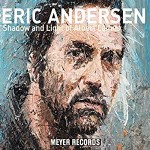
Eric Andersen: I’m going to do material off of some special projects that I’ve done in Europe. I did an album in conjunction with the family of the writer-philosopher Albert Camus, so I’m going to do some material from that project. The title of that is Shadow and Light of Albert Camus.
I’m going to be singing stuff from Lord Byron, a show that I did at his house in England, his ancestral home – we did a concert there to raise money. The Lord Byron album is called Mingle With the Universe: The Worlds of Lord Byron. It’s coming out on May 19th. It’s a fourteen song cycle, an opus, using Lord Byron’s words and my music, and I have two original songs where I talk about who Lord Byron is, the poet. He was the greatest Romantic poet.
Another thing is I might do a song from another project I’m doing on Heinrich Boll. He’s a post-war German writer, an anti-fascist, anti-Nazi writer. He served in the German army. And I’m working with his family on that. So there are kind of special things that yielded some very good songs.
Otherwise I’ll do stuff that I recorded in my past. I’ll be doing some songs from an upcoming Sony album, a two-CD set on my works over a period of time, kind of a retrospective. And I’ll be working with some very good musicians.
JM: Speaking of your past, it’s fascinating that you were part of the Greenwich Village folk music scene. Do you have any favorite memories from that time that you’re willing to share?
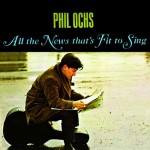
EA: Well, besides knowing some great people like Fred Neil and Phil Ochs and Bob Dylan, meeting those guys, and Buffy Sainte-Marie – the original singer-songwriters, actually, after Woody Guthrie, was this group of people. That was always charming, and we had a lot of fun hanging out in the Village.
But the main thing for me was listening to all the blues and jazz artists that came to New York. I was waiting for my first album to come out and I had time to kill, so I spent all my nights in clubs listening to blues and jazz. These musicians played gigs for six nights a week, you know? They moved into town, unlike today where people just play one-nighters and move on. In those days, they would play for six nights. Son House or Miles Davis or Muddy Waters, all these great artists. So I really got to hear the sources, the roots of the great music. So that was kind of my university training in music, listening to these guys. They were the real deal.
JM: Was Reverend Gary Davis around then also?
EA: Of course! I saw him a million times. I played his guitar.
JM: I really like your album ‘Bout Changes and Things from that era. What are your reflections on that album?
EA: Well, for starters I think I sound like I’m fourteen years old [laughs]. The voice has deepened and darkened since then.
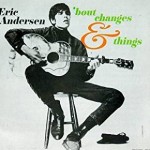
Well, I wrote a lot of my well-known songs on that album, like “Thirsty Boots” that John Denver and Bob Dylan recorded, Judy Collins. “Close the Door Lightly [When You Go]”, “Violets of Dawn”. They became like folk music standards, those songs.
JM: Do you have a favorite cover version of those songs?
EA: I think John Denver did the most musical cover version, but Bob Dylan was very accurate with the lyrics, absolutely perfect.
JM: That has to be pretty cool to have Bob Dylan sing one of your songs.
EA: Yeah, it’s nice [laughs].
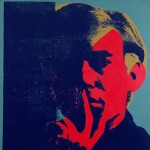
JM: I read that a little bit before that album came out you were in an Andy Warhol movie. How did that come about, and what was that experience like?
EA: He was a friend of mine – we were both born in Pittsburgh. He was older than I was. So we were kind of good friends. I did a couple of screen tests for him, and I did a film [Space] with Edie Sedgwick and Don Lyons. I would see him from time to time, and I liked him a lot. You know, he was one of the geniuses you’re lucky to rub shoulders with during your time here on Earth. He’s one of them.
JM: You may or may not know that Edie Sedgwick was from Santa Barbara.
EA: She was very sweet. I loved her – she was wonderful.
JM: Speaking of geniuses, you were also friends with Lou Reed. Did you meet him back then when you were hanging out with Warhol?
EA: That was a funny thing. We never met then. I’d seen him play with The Velvet Underground, but we never met. I mean, I was on the West side, you know, more like the Broadside Magazine side of the Village. He was more like the East Village. So it was like the same city but two different trainlines or two subway lines [laughs]. He was on the East and I was on the West.
I finally met him at Andy Warhol’s funeral. We walked up to each other and said “hello”, and the first thing out of his mouth was, “Andy Warhol was the only one in the music business that didn’t try to fuck me.” And I don’t mean sex. Those were the first words he said to me.
I’ve known Lou for a long time. We spread his ashes in Long Island a couple of years ago – Laurie Anderson, his wife, me and a couple friends. We had a lot of good times together.
JM: You did a song together, right?
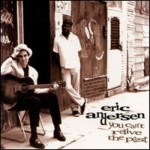
EA: Yeah we did. We recorded a song we wrote together called “You Can’t Relive the Past”.
JM: What was it like working with him on that?
EA: We did the lyrics and we went into the studio with no idea of the music, and we just sort of made it up on the spot. We did two takes, and that was it. Two acoustic guitars.
JM: You were part of the Festival Express train tour, which sounds pretty wild. Are there any crazy stories that you’re willing to share about that?
EA: Well, it was great music. We had a whole train to ourselves. It was like the greatest rock ‘n’ roll party that ever happened in history. I mean, just all of these people on the train together, drinking and getting high and doing shows. It was great.
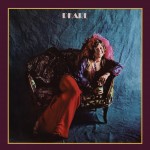
JM: I read that you met Janis Joplin when you were on that tour?
EA: Yeah, Janis actually became my best friend for a while. It was horrible, because I woke up one morning and went to the corner, and on the newspapers it said she died. And I’d just seen her record the song “Mercedes Benz”. I went up to the studio and she did that recording, and like two days later… It was scary. Most of the people I know are dead [laughs]. I mean, everyone you’re mentioning.
JM: What was Janis like?
EA: Oh, she was very warm-hearted, a great sense of humor, very, very smart, very intuitive, very empathetic. As a friend, she was the best you could get.
JM: It’s really a shame that she died so young.
EA: Yeah, and Jim Morrison. That was terrible.
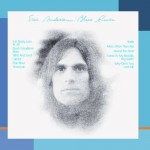
JM: I think that your best-known album is the Blue River album. What were you going for with that? It has a different sound from, say, the ‘Bout Changes and Things album.
EA: Nothing was conscious. It was just whatever happened that day, that month. Whatever the feeling was, and the chemistry, the combination of ingredients – it always creates another outcome. It was just a magical time. But it wasn’t all done in Nashville. Some of that stuff was done in L.A. and San Francisco, too. It somehow congealed into one kind of nice beautiful sound.
JM: A couple of years after that album, you were part of Bob Dylan’s Rolling Thunder Revue. I read an account of the opening night of that, which you were a part of, and it sounded pretty crazy. What are your memories of that?
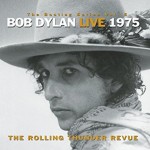
EA: It was just an opportunity to get together, whoever was going to play on it or not play on it. It was a real New York event. Bette Midler was there. I brought Patti Smith over. David Blue was there, Phil Ochs was there. Everybody played a little bit, and Bob hung out.
Then they took it on the road. I joined them on Niagara Falls. It was amazing. I don’t know if anybody who was there really remembers what happened [laughs]. I think Sam Shepard traveled with them, and Larry Sloman. Alan Ginsberg was on for a while, Joni Mitchell, Roger McGuinn. You know, I knew all these people.
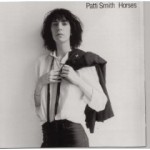
JM: You mentioned Patti Smith. In December, I went to her 70th birthday concert in Chicago.
EA: Oh really? That’s nice.
JM: She’s great still.
EA: I’m a big fan of hers. We did a thing… She invited me up to play a show in Oslo. It was great.
JM: How did you meet her?
EA: I met Patti at the Chelsea Hotel in New York, I think through Gregory Corso. I remember Robert Mapplethorpe was around. She was living with him for a while, then living in the Chelsea, then he got an apartment. It was in 1969 or 1970.
We did a thing for Albert Camus in New York City, to celebrate the 70th anniversary of his visit when he came over to give a speech at Colombia University. We did a thing with his family again. We did special events for three weeks. Ben Sidran played, Viggo Mortensen read the speech at Colombia on the very day that Camus had done it, I did a thing at the National Sawdust of my Camus works with David Amram, and Patti talked at the City University of New York. So we had a beautiful three weeks of these events.
JM: What advice would you give to an aspiring musician, or an aspiring songwriter?
EA: I think you have to be ready to receive the message. As a writer, I just feel like I’m just a receiver, I just feel like I’m a medium. I just sit down and scribble it down like a stenographer. I don’t have any grand plans. Though I’ve worked within the realm like with Camus and these people, of course there’s the writer, and you work with the writer.
But in terms of just writing in general, just feel free to explore. Jump on the boat and get on the river and just travel, and report on what you see. Take a trip and report it. Follow your dreams, and shoot for the stars.
JM: I understand that there’s a documentary about you in the works.
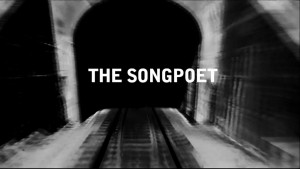
EA: Yeah, it’s called The Songpoet.
JM: Have you been heavily involved with that?
EA: Well, yes and no, I was. I mean, they used a lot of my early film work – things that I used for films. They used a lot of my writings, and a lot of stuff from my archives. And I did voiceovers. So I’m involved.
It’s almost a hybrid between a documentary and a film.
JM: Do you know when that will come out?
EA: Yeah – 2018.
JM: These things always take longer than expected, right?
EA: Oh boy, tell me about it. This thing started in 2010. Everything takes time.
JM: Another person who’s unfortunately not with us anymore that I wanted to ask you about is Townes Van Zandt.
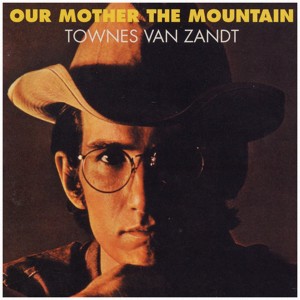
EA: Oh yeah. Townes – I worked with him a lot. We wrote four songs together.
JM: What was it like working with him?
EA: Oh, I loved Townes. At one point we were both real skinny. We were Southern and Northern versions of each other. It was weird. So when he’d come north he’d stay at my house, and when I went south I’d go stay with him. He was great. He was very funny and very smart. He was another genius-type.
JM: I’m amazed at how many people you intersected with over your career.
EA: Yeah, I was lucky to meet and work with a lot of great people.
JM: One name that comes up in your biography is Brian Epstein. What happened with that?
EA: [laughs] He was my manager.
JM: So he had signed you?
EA: Yeah, Brian signed me, but he never signed contracts. He just said, “I’m your manager”, and we started working together.
JM: How did you come into his orbit?
EA: He came into mine. I was playing a gig at Steve Paul’s Scene, and Bobby Colomby, you know from Blood, Sweat & Tears, brought him down. We played for a week, and Brian came down every night. One night I met him and he said, “I want to manage you.”
JM: And I guess you say “yes” to that, right?
EA: I said, “I’ll think about it.” [laughs] “I’ll think about it.”
JM: Any other things that you’re working on?
EA: There’s the Heinrich Boll project. I’m working on writing my own album. I’m working on my own writing. A lot of it’s centered around writing. I’m working on this episodic novel, crazy novel. I’m working on the film. You know, trying to get by, trying to make a living, trying to make a buck every once in a while.

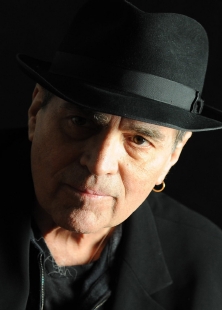
I would just like to say how much I dmire Eric Andersen as a musician/song writer and as a person. I first heard his music when I was 17 or 18 and it was some of the absolute, most beautiful music of the folk era. His songs and music stayed in my heart and head for all these years / I am now 68 years young. THANK YOU Eric Andersen !